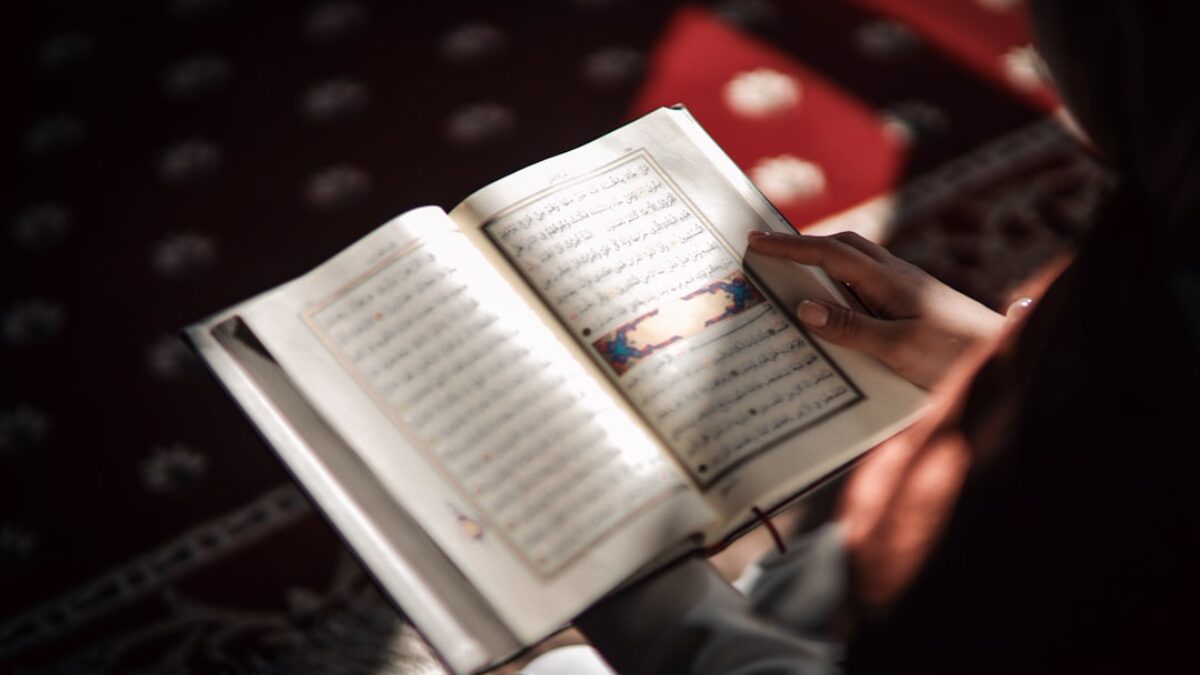The Qur’an is the literal word of Allah, but the Hadith—the record of Prophet Muhammad’s sayings, actions, and approvals—forms the indispensable lens through which Muslims understand and live by the Qur’anic message. Without the Hadith, five daily prayers would be reduced to vague instructions, Zakah would lack percentages, and Hajj would be an outline without steps. In short, Hadith is the practical “how-to” manual of Islam. This guide explores why Hadith matters, how it is preserved and classified, and how it continues to shape the daily lives of nearly two billion believers worldwide.
Understanding Hadith in the Islamic Tradition
Definition and Scope
In Arabic, ḥadīth simply means “report” or “narrative.” In the technical sense used by scholars, it denotes every statement, deed, tacit approval, or description of the Prophet’s physical appearance and character that has been transmitted with a verifiable chain of narrators (isnād). Every Hadith therefore carries two inseparable parts:
- Matn – the actual text or content of the report.
- Isnād – the chain of transmission reaching back to the Prophet.
Primary Sources of Hadith
The most authoritative collections emerged during Islam’s classical period:
- Saḥīḥ al-Bukhārī (d. 256 AH) – 7,563 narrations after repetitions removed.
- Saḥīḥ Muslim (d. 261 AH) – 4,000+ unique narrations, often cross-referenced with Bukhārī.
- Sunan Abī Dāwūd, Jāmiʿ al-Tirmidhī, Sunan al-Nasāʾī, Sunan Ibn Mājah – collectively called the Kutub al-Sittah (Six Books).
- Muwaṭṭaʾ Mālik, Musnad Aḥmad, and other early compilations.
The Qur’an and Hadith: A Symbiotic Relationship
Allah states, “And We revealed to you the Reminder (Qur’an) so that you may clarify to the people what was revealed to them” (Q 16:44). Classical exegetes agree that clarification (tabyī) came through the Prophet’s own words and deeds. Examples include:
- Number of prayer units (rakʿāt) – not specified in the Qur’an but detailed in Hadith.
- Prohibition of gold and silk for men – explicitly stated in Hadith, applied by analogy from Qur’anic principles of modesty.
- Interpretation of ambiguous verses – e.g., Surah al-ʿAbasa (He Frowned) is elucidated by Hadith explaining the context of the blind man’s interruption.
Key Components of Hadith Science (ʿUlūm al-Ḥadīth)
Classification by Authenticity
| Grade | Definition | Example | Usage in Law |
|---|---|---|---|
| Ṣaḥīḥ | Continuous chain, reliable narrators, no hidden defects | The Hadith of Actions are judged by intentions | Primary proof in jurisprudence |
| Ḥasan | Good chain, minor leniency | “Whoever believes in Allah and the Last Day, let him honor his guest” | Supporting evidence |
| Ḍaʿīf | Weak due to broken chain or unreliable narrator | “Plague is martyrdom for every Muslim” (some versions) | Used only cautiously for virtue, not binding rulings |
| Mawḍūʿ | Fabricated | Attributed to ʿAlī: “I am the city of knowledge and ʿAlī is its gate” (in its full form) | Rejected outright |
Criticism Principles (Jarḥ wa Taʿdīl)
Hadith critics employed biographical evaluation (rijāl criticism) to vet every narrator. Criteria included:
- Integrity (ʿadālah): upright moral character.
- Precision (ḍabṭ): accurate memory and transmission.
- Overlap (muṭābaʿah): corroboration by other narrators.
A single narrator known for lying or chronic forgetfulness could disqualify an entire chain, illustrating the rigor of early Muslim scholarship.
Major Categories of Hadith Content
- Aḥādīth al-Aḥkām – legal rulings (ritual, commercial, penal).
- Aḥādīth al-Faḍāʾil – virtues (e.g., merits of reciting Qur’anic chapters).
- Aḥādīth al-Tafsīr – exegetical narrations.
- Aḥādīth al-Targhīb wa al-Tarhīb – encouragement and warnings.
Benefits and Importance of Hadith
Preservation of the Prophet’s Sunnah
Allah promised, “Indeed, it is We who sent down the Reminder, and indeed, We will be its Guardian” (Q 15:9). Scholars interpret Guardian as encompassing both Qur’an and Sunnah. The meticulous isnād system, memorization networks, and later written codification ensured that every generation until the Day of Judgment can know precisely how the Prophet prayed, traded, married, judged, and forgave.
Legal Authority (Ḥujjah Sharʿiyyah)
Islamic law (Sharīʿah) derives rulings from four primary sources:
- The Qur’an.
- The Sunnah (Hadith).
- Consensus (ijmāʿ).
- Analogical reasoning (qiyās)—itself built upon Hadith evidence.
Without Hadith, roughly 20–25 % of Islamic law would vanish, including the prohibition of interest (ribā) in all its modern forms and the detailed regulations of fasting.
Spiritual and Moral Transformation
Hadith offers a living portrait of ihsā (excellence):
- “Smiling is charity” reshapes interpersonal ethics.
- “None of you truly believes until he loves for his brother what he loves for himself” underpins Islamic social welfare systems.
- The Night Journey (Isrāʾ wa Miʿrāj) narrations explain the spiritual etiquette of daily prayers, turning a physical exercise into an ascension (miʿrāj) of the soul.
Cultural and Civilizational Impact
From the medical ethics in the Oath of the Doctor attributed to the Prophet, to environmental stewardship (“If a Muslim plants a tree, whatever is eaten from it is charity”), Hadith seeds have blossomed into hospitals, botanical gardens, and zero-waste movements across fourteen centuries.
Practical Applications of Hadith Today
In Personal Worship
Perfecting Prayer (Ṣalāh)
A contemporary Muslim consults Hadith to answer questions such as:
- What is the exact wording of the opening supplication (duʿāʾ al-istiftāḥ)? The Prophet recited, “Subḥānaka Allāhumma wa bi ḥamdika…”
- May a person praying alone raise their voice in recitation? The Hadith of Abū Hurayrah confirms the Prophet sometimes did so to teach companions, but generally preferred quiet recitation in non-congregational prayers.
Zakah Calculation
The Qur’an commands Zakah without specifying minimum thresholds (niṣāb) or rates. Hadith supplies the numeric structure:
- Gold: 85 g minimum, 2.5 % rate.
- Trade goods: 2.5 % on wholesale value.
- Livestock: variable rates depending on species and quantity.
In Family and Society
Marriage Contract Essentials
A modern nikāḥ document is valid only if it meets Hadith criteria:
- Offer and acceptance in one sitting (Hadith: “There is no marriage without a guardian”).
- Dowry (mahr) explicitly agreed upon; the Prophet set the precedent for modest sums.
- Two upright witnesses, as narrated by ʿĀʾishah.
Business Ethics
Islamic finance boards vet each sukuk (Islamic bond) against Hadith such as:
“Gold for gold, silver for silver, wheat for wheat… like for like, hand to hand” (prohibition of ribā al-faḍl).
This single report underpins the entire commodity-backed trading model used by Islamic banks in 2025.
In Technology and Bioethics
Organ Donation
Classical jurists never envisioned heart transplants. Contemporary bodies like the International Islamic Fiqh Academy cite the Hadith, “Whoever saves a life, it is as if he saved all mankind” (with full isnād analysis), to authorize organ donation under strict conditions.
Digital Muftis
The Hadith verification apps (e.g., “Hadith Encyclopedia”) use AI to cross-reference any quoted narration against 22 classical Hadith databases, assigning authenticity grades in real time, thereby democratizing knowledge for 400 million first-generation internet Muslims.
Frequently Asked Questions
What is the difference between Hadith and Sunnah?
Sunnah is the broader concept encompassing the Prophet’s way of life, while Hadith is the textual vehicle that conveys that Sunnah. In practical usage, “Sunnah prayers” refers to the recommended units the Prophet regularly performed, even if each specific number is documented via Hadith reports.
How do scholars determine if a Hadith is authentic?
The process, called taḥqīq al-ḥadīth, involves:
- Scrutiny of each narrator’s biography for integrity and precision.
- Comparison with parallel chains to detect discrepancies.
- Evaluation of the text (matn) for conformity with Qur’an and established Sunnah.
- Linguistic and historical plausibility checks.
Are there Hadith that contradict science?
Apparent contradictions often stem from mistranslations or weak narrations. For instance, the “sun prostrates beneath the Throne” Hadith is interpreted by classical scholars as metaphorical, denoting divine authority, not literal planetary movement. Authentic Hadith undergo contextual hermeneutics to harmonize revelation with observable reality.
Can a lay Muslim quote Hadith without deep study?
A layperson may relay well-known, authentic Hadith for moral encouragement, but must avoid deriving legal rulings without consulting qualified scholars. The Prophet warned, “Whoever speaks about the Qur’an without knowledge, let him take his seat in the Fire” (Tirmidhī), a caution extended by analogy to
























Post Comment